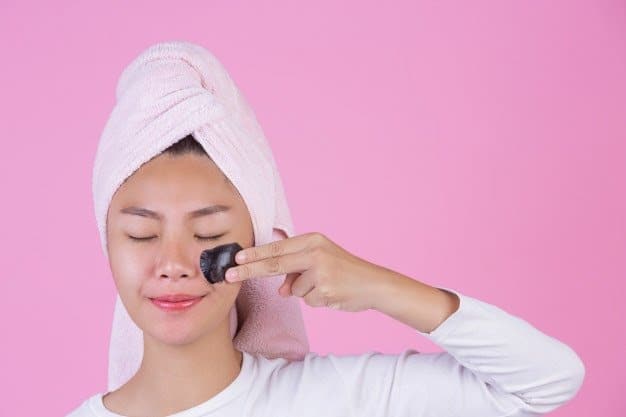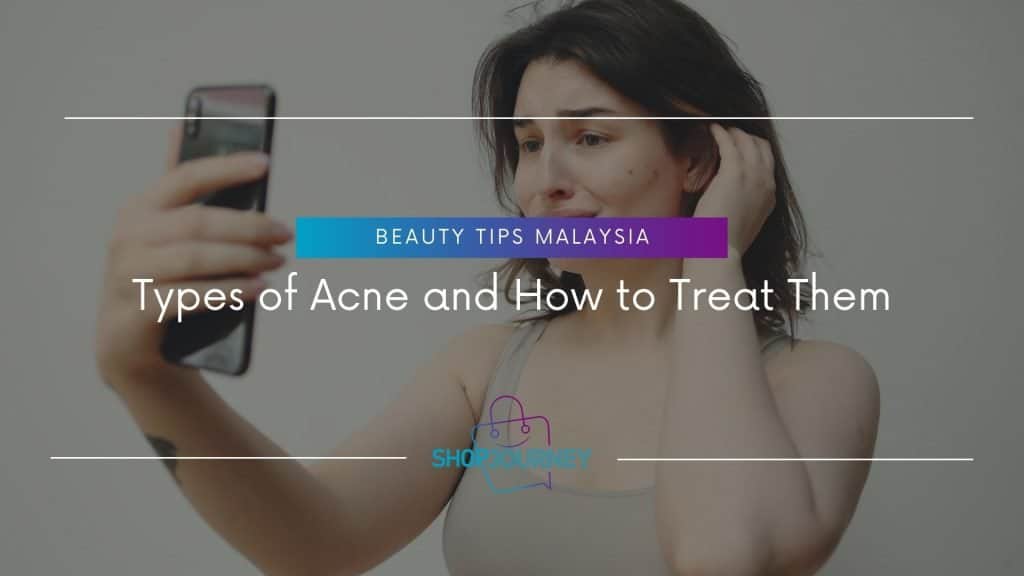If you’ve ever had acne on your face, you know how it feels. Having pimples on your skin can be frustrating, especially when they appear before an important occasion. Luckily, the health and beauty industry has made significant progress in acne control, and now you can take steps to prevent acne or better yet, get rid of it completely!
Many people wonder how to treat acne fast, but there is no simple answer to this question. You should do research and dedicate your time to the recovery process in order to achieve results.
Here’s a trusted acne guide to get you started! You can start by learning about the different types of acne and how to treat them.
What is Acne?
Acne is a typical condition of the skin that results in pimples appearing across your face, shoulders, back, or even chest. They can appear due to different causes such as genetics, hormones, constant stress or use of products that are bad for your skin. However, teenagers tend to be most prone to acne.
Acne is mainly connected to the condition caused by androgen hormones. This usually happens when you are young. Acne often appears on sensitive skin, but they are also caused by bacteria on your skin.
In order to know more about types of acne and how to treat them, you should also familiarize yourself with the causes of acne. Here are some of the key causes of acne.
- Hormonal changes (especially during periods for women)
- Picking sores on skin
- Wearing tight clothes, hats, or helmets
- Polluted air and certain kinds of weather (such as increased humidity
- Oily/greasy beauty products (such as certain lotions, face creams, or pomades for hair)
- Stress, which enhances cortisol levels
- Certain medications
- Genetic conditions
Types of Acne
There are two basic types of acne. They are non-inflammatory and inflammatory acne.
Non-inflammatory Acne
Non-inflammatory acne doesn’t result in swelling. However, they differ in terms of open and sealed comedones. The most common types are:
Blackheads
Blackheads can come from clogged hair follicles. When exces sebum and dead skin cells are gathered at those pores, a little bump can take shape. When that tiny bump is exposed to open air, that exposure causes it to appear as a black dot. These black dots can appear on different parts of your body, but we often notice it on our faces. This is a mild type of acne and you’ll need anywhere between 6-8 weeks to fully cure them.
Whiteheads
They appear due to congested pores caused by sebum as well as dead skin cells. However, there is one aspect that makes them different from blackheads. The outer pore layer is sealed, so they can’t be easily squeezed out like blackheads. They emerge as little light-colored bumps and can appear all over the body. Whiteheads are also considered mild acne and aren’t as noticeable.
Inflammatory Acne
Inflammatory acne is what you’ve probably guessed is the most frustrating type of acne. They tend to be stubborn, red, and angry-looking. Sometimes, they are accompanied by swelling, pain and itchiness. Let’s look at some of the key types of inflammatory acne so you can put a name to what ails you!
Papules
They have a form of red bumps and can emerge anywhere on your body, even the neck, shoulders, chest and back. Papules appear when a follicle’s wall is broken. When that happens, bacteria enters the dermis which results in inflammation and the pimple. Red bumps are moderate types of acne in terms of severity, and usually emerge on the face. Over-the-counter medicines can help, but there are also plenty of natural home remedies out there.
Pustules
This is a typical kind of acne with a whitehead that includes pus, and dead cells, with oils. They appear on the face, shoulders, or back. They usually appear if you have a rupture based in a pore. At that moment, the body sends a signal to fight against bacteria. White blood cells are sent as a fighting mechanism.
Fungal Acne
They appear when a surplus of yeast gathers in the hair follicles. They can cause itchiness, irritation and inflammation. If you want to know how to treat fungal acne, stick with us!
Cystic Acne
These are the most dangerous types of acne, accompanied by severe pain. They are usually soft, big, and right under the surface of your skin. They are usually formed in the identical form as nodules, although in a more severe mode. Acne cysts are full of blood and pus, and they cause scarring. They can appear on your face or on your body.
Nodules
This severe form of acne appears as large lesions that are heavy and painful. Nodules are typically deeply embedded in the skin. As for the development process, they come from a ruptured follicle’s wall which causes polluted debris to enter the skin and contaminate all other follicles. As a result, your skin becomes swollen and nodules are formed. They also contain pus and you’ll experience pain at the nodule site. However, you will not see any kind of whiteheads as they are deep in the skin. Primary sites for nodules will usually be the face, back or chest.
How to Treat Them!
Now that we’ve been through the different types of acne, the first thing you should do is try to identify what kind of acne you’re suffering from. With a dermatologist’s help, you can also identify the probable cause of your acne. Are you looking for how to treat cystic acne or how to treat hormonal acne?
If you want to know how to treat acne fast, here’s a detailed list of acne treatments you can try for non-inflammatory and inflammatory acne.
How to Treat Non-inflammatory Acne
Some of the most popular ways to treat acne that isn’t inflamed are:
- Salicylic Acid – It works as an exfoliator and exfoliates dead cells from the surface. There is also beta-hydroxy acid derived from birch, wintergreen oil, or willow tree bark.
- Benzoyl Peroxide – It has antibacterial qualities that helps remove the bacteria, which is caught in the pores. The bacteria remain on debris, and tissues of the skin. At the same time, benzoyl peroxide enters the skin and cures and decreases redness.
- Sulfur – It has an absorption function and removes sebum that can cause breakouts of acne. It will also dry dead skin cells which will unclog pores.
You can also try home remedies like making a blackhead removal paste with ingredients such as honey which is a natural antioxidant and baking soda which is a natural exfoliator. For drugstore options, try active charcoal masks or peel-off masks that can help extract blackheads.

How to Treat Inflamed Acne
Most people will generally look at how to treat acne naturally at home, but with inflammatory acne, symptoms can be quite severe. Some home remedies that might work to reduce swelling are aloe vera, turmeric, an oatmeal-honey mask, and certain essential oils that have antibacterial properties.
For a quick fix, even ice or an acne patch from your local pharmacy can greatly reduce redness. However, if you have severe acne, visiting a skin specialist might be a good idea.
When it comes to the treatment of inflammatory acne, you can try these substances:
- Niacinamide – It decreases breakouts and the inflammation level. It will also prevent water loss. The production of excess oil is kept under control and skin content balanced. It also has a hydrating and relaxing effect on your skin.
- Tetracycline and Erythromycin – Here we speak about oral antibiotics which typically don’t have side effects.
- Isotretinoin – This is another prescribed medication you should take orally. It controls severe types of acne, which is presented by large cysts across the face, shoulders, and neck.
However, this treatment method is not suitable for pregnant women. Isotretinoin results in dehydrated skin, dryness of the eye, and irritation. It also can be quite expensive, and should only be used for the most severe cases when other treatments are not effective. - Oral Contraceptives – These are otherwise known as birth control pills. They contain estrogen and progesterone that reduce the sebum production and acne. FDA-approved pills are best and some of those are Estrostep, Yaz, or Ortho Tri-Cyclen.
In case of severe conditions, you can also consider the following methods:
- Antibiotics including Tetracycline or Amoxicillin
- Corticosteroids
- Contraceptives when it comes to Hormonal Acne
- Retinoids
- Steroid-based Injections
- Chemical Peels which can be found online or in pharmacies
- Photodynamic treatment
- Drainage or Extraction
You can also arrange an appointment with your local dermatologist to enquire about steroids, lasers, and chemical peels. Steroids can be utilized to treat serious conditions with acne. On the other hand, there are lasers mostly used for acne scars. A laser transmits heat to the collagen beneath the skin, which relies on the wound and produces new collagen. It also leads to the creation of new skin. Today you can choose from ablative or non-ablative lasers.
Acne Prevention
While acne can pop up anytime, there are acne prevention methods that can help reduce the frequency and severity of breakouts. Here are some tips which will keep your skin free of acne:
- Wash your face on a daily level with water and a cleanser
- Use a moisturizer
- There is no need to stop using makeup. Switch to “non-comedogenic” solutions and make sure you remove your makeup before sleeping.
- Keep your hands off your face!
Acne Treatment Products
If you’re looking to combat acne, you can choose one of the many products on the Malaysian market. Here we can recommend the following:
Best Product for Acne: NEXCARE Acne Patch 36pcs
This acne patch is safe for most skin types. It absorbs oil from the problematic area. Just peel off a patch and use it on clean and dry skin. If the color turns from clear to white, that means it’s doing its job!
Top Solution for Pimples: OXY 10 ACNE PIMPLE TREATMENT With Benzoyl Peroxide
This is the product with the maximum strength and 10% Benzoyl Peroxide. It removes bacteria very fast and efficiently. It dries excessive oil and helps in unblocking pores. It goes deep into the pores to hinder the formation of new pimples.
When using the product, you should wash the skin and dry it. Shake the product before using it. Then dab on the product and smooth it on the pimple parts of the neck and face. Make sure to apply the product once per day and continue with twice a day.
Best Acne Face Wash: Himalaya Purifying Neem Face Wash
The product was formulated to leave your skin looking clear and bright. Daily use will soothe your skin and help by removing excess oil. Neem will kill the bacteria, while turmeric helps control acne. Before using the product, just moisten your face and massage it into your skin.
Avoid the eye area as you’re doing so. Rinse your face after then pat dry with a towel. For the best possible results, you can also consider adding the Purifying Neem Scrub and Neem Mask to your routine.
Top Acne Solution: Eucerin ProACNE Solution A.I. Matt Fluid
The brand-new Eucerin Pro Acne Solution A.I Matt Fluid combats pimples and reduces blemishes on acne-prone skin. The fluids include salicylic acid, and Licochalcone A which soothes irritation and inflammation of the skin while also reducing redness.
Additionally, it consists of a sebum-regulating solution which decreases sebum production. Its mattifying particles provide an 8h anti-shine effect.
Conclusion
Now you know all the types of acne and how to treat them. Acne can be frustrating, but there are in fact, many solutions that can curb the appearance and additional spread of acne. Try to prevent acne breakouts by taking care of your skin and your general health.
If acne starts to appear, try not to touch it too much. Try some over-the-counter measures or consult a specialist if you’re facing severe acne. The best acne face wash we recommend is the Himalaya Purifying Neem Face Wash. For a quick fix, the NEXCARE Acne Patch should work fine.
Leave a comment below if you have any questions or acne solutions you’d like to share!




